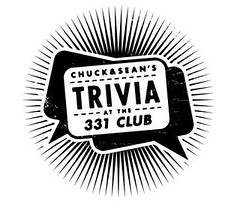 DO A SEARCH for "Ulysses" and "drinking" and you're not going to get a lot of results having to so with the James Joyce novel that takes place on June 16, 1904 and gets celebrated every year on this day, Bloomsday. You're going to get a lot of hits about Ulysses S. Grant and drinking, but almost none about Leopold Bloom.
DO A SEARCH for "Ulysses" and "drinking" and you're not going to get a lot of results having to so with the James Joyce novel that takes place on June 16, 1904 and gets celebrated every year on this day, Bloomsday. You're going to get a lot of hits about Ulysses S. Grant and drinking, but almost none about Leopold Bloom.Nevertheless, "Ulysses" is a book that takes place in Dublin, so it's almost inevitable that the characters are going to find themselves in a pub. The most widely accepted schema for the book names each of the numbered chapters according to an episode from "The Odyssey". Paul Schwaber, in his excellent book "The Cast of Characters
Dublin's pubs offered dependable comforts to men at all troubled in mind or spirit. At 4:00 pm, the appointed time for Boylan to arrive at 7 Eccles Street, Leopold avails himself of that solace. Set for the most part in the Ormond Hotel's dining room and bar, "Sirens" uses the musicality of English to evoke qualities of experience that delight, absorb and generalize--that dissolve distinctiveness into the amiable satisfactions of chat, booze, flirtation, and song, of comfortable expressions of acceptable sentiments. The narrator--and thereby the music maker--stand out. His words virtuosic as notes, his prose plaing melody and harmony, the narrator, though not a visible character, now calls the tune.
 The Ormond Hotel (located at 8 Ormond Quay Upper) was, according to Don Gifford's "Ulysses Annotated
The Ormond Hotel (located at 8 Ormond Quay Upper) was, according to Don Gifford's "Ulysses AnnotatedTo be sure, Joyce's prose can be difficult to parse, but what's lost in most discussions of "Ulysses" is that the writing can be enjoyed without a complete understanding of the references and meanings of every sentence. His skillful way with the music of conversation in the bar is supremely evocative of the hum and buzz of a typical pub. The chapter opens on the two barmaids, Miss Douce and Miss Kennedy, whom the narrator likens to bronze and gold, based on their hair color. Just check out this scene of them laughing:
"Shrill, with deep laughter, after, gold after bronze, they urged each other to peal after peal, ringing in changes, bronzegold, goldbronze, shrilldeep, to laughter after laughter. And then laughed more ... Exhausted, breathless, their shaken heads they laid, braided and pinnacled by glossycombed, against the counterledge. All flushed (O!), panting, sweating (O!), all breathless."
That strong undercurrent of flirtation and barely restrained sexuality courses through the whole chapter, just as it charges a packed bar on a weekend night.
"--You're the essence of vulgarity, she in gliding said.
Boylan eyed, eyed. Tossed to fat lips his chalice, drank off his chalice tiny, sucking the last fat violet syrupy drops. His spellbound eyes went after, after her gliding head as it went down the bar by mirrors, gilded arch for ginger ale, hock and claret glasses shimmering, a spiky shell, where it concerted, mirrored, bronze with sunnier bronze."
 We're not asking you to read the whole thing--that's a task more suited for Hercules than Odysseus. But if you get a chance today, pick up a copy of "Ulysses" and just blow right through Chapter 12, "Sirens", if you get a chance before you head out to the bar tonight.
We're not asking you to read the whole thing--that's a task more suited for Hercules than Odysseus. But if you get a chance today, pick up a copy of "Ulysses" and just blow right through Chapter 12, "Sirens", if you get a chance before you head out to the bar tonight.Happy Bloomsday. (McPHERSON)

 2 oz. whiskey
2 oz. whiskey


2 comments:
James Joyce's dirty letters to his beloved Nora Barnacle are also worth reading on Bloomsday. Because they are fun and dirty and easy to understand even after your fourth shot of Jameson's. Look out for the "dirty lumpy red pole"!
Another reason to read them today: according to Richard Kain's study Fabulous Voyager: James Joyce's Ulysses (1947), Joyce chose June 16, 1904 as the setting for Ulysses because that's the exact date he met Nora.
interesting
Post a Comment